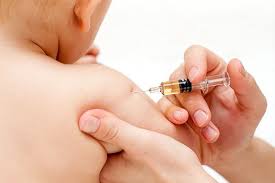
Why, you might ask, is Dan Edelman writing articles about clinical trials? In a few words, I believe we who support those suffering from illness can do better. It is all so personal. Before the pandemic, I met with a woman and her husband to discuss clinical trials. She had lived with stage 4 breast cancer for the previous five years, surviving beyond her initial prognosis, thank G-d. I spent an hour-and-a-half with them, and they told me afterwards that no one, not even their oncologist, had spent so much time with them discussing options. Sadly, just after entering a clinical trial in Boston, she passed away leaving a bereft husband, orphans, and family. Now, when I go to the Baltimore cemetery where my grandparents and in-laws are interred, I also stop by her kever (grave). I express how sorry I am that we could not save her life and promise I will do better for others suffering from cancer; these articles are part of that promise. I pray that scientists and medical professionals who read these articles will be inspired to do better for their charges.
Such
experiences create for me a vision for the way things ought to be. It should be
that members of our community are able to find hope in a central chesed organization that would support,
guide, and advise them and their families as they search for and enter clinical
trials.
One
problem with entering a clinical trial is that even with basic scientific and
medical knowledge, perhaps provided by articles such as these, the task is
daunting. In the background, there is a medical journey that might have been
years in the making. Along with that is the exhaustion: physical, mental,
emotional, and spiritual. The path to and participation in a clinical trial
requires more strength in each. For example, recently, someone
who was remanded to a clinical trial (meaning, no more standard therapies were
available) received an informed consent document 27 pages long! She started
reading it but had to put it down; it was “too scary.”
There has to be a chesed organization in our community
that walks with patients during this very frightening time in theirs and
their family’s lives. Let’s call this new entity Path to Hope for
now. The expectation would be that this new organization would have the
expertise and energy to support patients and families through the clinical
trial process. I pray that such a non-profit will be formed in the near future,
perhaps under the auspices of an already existing and relevant chesed group.
In my estimation,
Path to Hope will need the following proper People, Places and Things.
People
A team of
specialists would be gathered that can be called upon for any given disease or
syndrome. These include physicians, researchers, social workers, nurses, physician
assistants, an advisory board, rabbinic oversight, and a peer-to-peer system
matching those who have gone through clinical trials to those prospecting for
one. Their activities would include meeting with patients to gather medical
information; exploring the clinical trial network and making initial inquiries;
providing logistical support for clinical trial applications, interviews,
attendance, and post-trial follow up; and conducting interviews during and
after the process to capture lessons learned and to develop best practices.
Place
There would be an
option for meeting in homes, but if the patient needs a more private location,
Path to Hope would have a homey but professional meeting place. Additionally,
this office would allow caretaker meetings to discuss cases. Importantly, it
would also function as a venue for professional development and training for
the personnel and volunteers of Path to Hope.
Things
I see the need for
an online platform to collect data and requests for assistance and to track
cases and their status; funding, including the online platform’s design,
maintenance, and reports; and insurance.
I invite you to
enroll in this vision of a better world for our friends and family who need us.
I share with you these ideas so that they will percolate within you and become
a factor in the birth of a new, amazing organization, b’ezras Hashem
(with G-d’s help). I look forward to hearing from you about your interest in
any capacity to support Path to Hope at dan.edelman@gmail.com.
In the upcoming
parts of this series, I hope to share more details about how clinical trials
work – their intrinsic and complex details – including resources, finding
trials, and knowing what to ask.
Daniel Edelman
received his B.T.L. from Ner Israel Rabbinical College, his M.S. in Applied
Molecular Biology from University of MD Baltimore County, and his Ph.D. in
Medical Pathology from University of MD Baltimore. Dr. Edelman worked at the
Food and Drug Administration (FDA) as a Scientific Reviewer for a brief stint
before moving to the NCI/NIH for 13 years as a laboratory manager of a clinical
laboratory supporting NCI cancer research and clinical trials. While at NIH, he
ran a science bridge program for seven years for dozens of young Orthodox
Jewish women seeking a mentored pathway into the sciences; many have gone on to
careers in science and medical fields. Currently, Dr. Edelman is a
Biologist/Policy Analyst at the FDA as part of the Personalized Medicine Team
where he and his colleagues seek to bring the right test, to the right patient,
at the right time, for the use of the right drug. The views expressed in this
series do not necessarily represent the views of the FDA or the United States
government.






